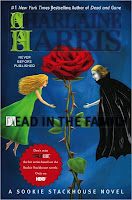About the author:
I’ve always had a passion for history, and military history in particular. As a boy, I devoured anything to do with soldiers and war, from the Romans to the Vikings and Crusaders. More modern conflicts weren’t excluded either, so I read all about the Napoleonic wars, the American civil war and World Wars One and Two. Growing up in a home without a TV, books became my escape into the world of imagination. Although all periods interested me, I always had a ‘thing’ for the Romans. And the purpose of writing Roman military fiction? Apart from putting bread on my family’s table and paying the mortgage of course! It’s simple – because I find the world of the Roman legionary endlessly fascinating, and I hope by writing gripping stories about them, full of accurate detail, that I can carry readers off to an exciting world where they can forget for a while the worries and strains of ‘normal’ life.
Find Ben online at www.benkane.net
Ben's words...
We are all familiar with the expression ‘History repeats itself’, but like so many common phrases, I hadn’t really given it much thought before. Four years ago, however, as I did the research for my first novel, The Forgotten Legion, I quickly realized that things didn’t just happen once or twice as time passed. Instead, they kept reoccurring over millennia! The example which sprang out at me was the way in which civilisations in the west have repeatedly clashed with those in the east, perhaps more than in any other part of the world.Thank you, Ben, for swinging by and sharing your thoughts with us. I think that we sometimes rather easily, and purposefully, forget... Forgetting things or events that did not have the desired outcome means we don't have to stare failure in the face. Whether this is at an individual level or a group psyche doesn't seem to matter. And so we find ourselves going around and around in an already-trodden path. Because until we can face events that we'd rather forget, we will never learn.
One of the most famous war-bringers was Darius, the Persian emperor, who attempted to invade Europe in the 5th Century BC. A century later, the assault was reversed when Alexander the Great rampaged with impunity across Persia, all the way to modern day Afghanistan and India, subjugating vast areas of land. The empire Alexander established did not linger, except in Egypt, and by the time of the late Roman Republic, the Parthian kingdom had united most his former lands in Persia and beyond. Parthia encompassed much of modern day Syria, Iran, Turkmenistan and Afghanistan, controlling and taxing the lucrative trade in silk and spices from India and China.
It was at this wealthy but sparsely populated region that Marcus Licinius Crassus, one of the three rulers of Rome in 53 BC, cast covetous eyes. His military credentials, the most prized quality in a Roman leader, were nowhere nearly as grand as his co-rulers, Julius Caesar and Pompey Magnus. So, desperate for public approval, and sure of success, Crassus led a huge force composed mostly of foot soldiers (legionaries) into Parthia. His lack of cavalry was a terrible error. The Parthian army was almost entirely composed of horse archers, men who had learned to ride and shoot their bows from early childhood. Their saddles were not unlike those of Western style, and kept them from falling off. They were thus able to guide their mounts with their knees while turned backwards, loosing arrows – the famous ‘Parthian shot’, later corrupted to ‘parting shot’. The shrewd Parthian general brought to the battle a train of over 1000 camels which carried spare arrows, and when Crassus’ horsemen were driven off or killed, the Romans’ fate was sealed. In one day, more than 20,000 legionaries were killed, making it one of the greatest defeats suffered by Rome.
Time passed, and civilisations rose and fell in the west, and in the east. Although the peoples involved were different, conflict still erupted. Notable among these were the wars of the Turks against the eastern Roman, or Byzantine, empire, which went on for hundreds of years, until Byzantium/Constantinople/Istanbul fell in 1453. Intermingled with this prolonged conflict were the Crusades, which lasted for two centuries or more, and which cost the lives of hundreds of thousands on both sides.
Sadly, it didn’t stop there, and readers will be familiar with the more modern struggles in that region, leading right to the present day, and the invasion of Iraq in 2003. It’s tragic really, that more than 2,300 years after Alexander the Great led an army of hoplites eastward, history is still repeating itself.
Thanks also go out to TLC Book Tours for organizing this tour!































